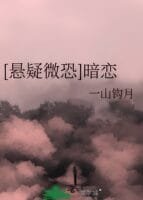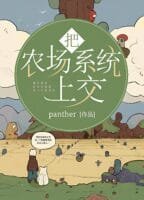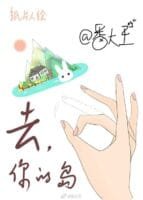Accidentally-Born-C51
by MarineTLChapter 51
Zhenzhen carried the large yellow croaker but was in no hurry to head to Ice City. With a flicker, she quietly appeared in her family’s storage room. Taking advantage of the fact that Grandma Li and Wang Sufen were not home, she quickly opened an old burlap sack in the storage room and dug out a set of Mingbei’s childhood clothes that were so worn out they were barely recognizable. Then, without a sound, she returned to the mountains.
Standing by a small stream in the mountains, Zhenzhen changed into the old clothes, untied her hair, and messed it up. She grabbed a handful of mud from the water’s edge and smeared it lightly around her eye sockets and nose, then dusted her face with some dirt. After tidying herself up, she checked her reflection in the stream. Her entire body was filthy, and her face was covered in grime—it was downright miserable to look at.
Sitting on a rock by the water, Zhenzhen sent her consciousness to Ice City to observe the Meng family’s situation.
At this moment, Master Meng had already packed several large boxes of his treasured antique calligraphy and paintings. He took a reluctant look at his now-empty study, his face full of sorrow.
“Master!” The butler brought a cup of tea and placed it on the desk. Master Meng looked at him and sighed, “Lao Guan, you’ve been with me for over twenty years now, haven’t you?”
“Yes, Master,” Lao Guan replied with a touch of nostalgia. “If it weren’t for you saving me from the hands of the Japanese twenty years ago, I probably wouldn’t even be alive today.”
Master Meng lit a cigar, took a deep drag, and exhaled the smoke as he spoke, “Back then, you lost your wife and children. You never remarried, and after your mother passed, you never returned to your hometown. Can you still contact your nephews back home?”
“There have been sporadic letters over the years. I also send money and ration tickets home every New Year. They rely on me for support, so they still treat me warmly,” Lao Guan replied. “But I never told them what I do here. I send all my letters to the factory, just like you taught me, Master.”
Master Meng nodded, then opened the briefcase on the desk, took out a pouch, and handed it to Lao Guan. “Inside, there’s a thousand yuan, a letter of introduction, a train ticket, and some ration and industrial coupons. Keep it safe.”
Lao Guan’s face froze, and his hands trembled. Before he could even speak, tears were already streaming down his face. “Master, are you abandoning me?”
“It’s not that I don’t want you. I just can’t take you with me,” Master Meng said, standing up and patting Lao Guan’s shoulder. “Over the years, we’ve called ourselves master and servant, but I’ve always seen you as a brother. You stayed with me during good times and never left me during hardships. But now, we have no choice but to part ways. To be honest, even after we drive to Tianjin, I’m not sure we’ll make it onto the ship. You’ll be better off returning home than following me into uncertainty.”
“Master, you’ll need someone to handle errands for you out there. Someone to pour your tea and take care of things. If I don’t go with you, who will do all that?” Lao Guan wept uncontrollably. “I’ve already lived more than twenty extra years, Master. I’m not afraid of death. Let me follow you!”
“Fansheng isn’t young anymore. He should take on these responsibilities,” Master Meng said. “My family has a capitalist background. Right now, the only way forward is to leave as soon as possible. There’s no need for you to suffer with us. Go home and live your life.”
He ended the conversation firmly, stuffing the pouch into Lao Guan’s arms before embracing him tightly. “You’ve been with me for so many years, so you know better than anyone how unpredictable people’s hearts can be. Inside this pouch, I’ve given you 800 yuan in large bills and exchanged 200 yuan into smaller denominations—one, two, five, and ten yuan notes—enough for daily expenses. When you get home, hide the money well. Don’t keep too much on you, in case you need a way out.”
Lao Guan wiped his tears and nodded with a choked voice. “Master, don’t worry. I understand. When I return, I’ll stay in my old house. My nephews can visit if they want, but if they don’t, I’ll still manage on my own.”
Master Meng nodded and released Lao Guan’s shoulder. “I left some patched-up old clothes in the warehouse downstairs. Change into those before you go.”
Lao Guan nodded, took a deep look at Master Meng, then knelt and bowed deeply.
The study door closed once again.
Master Meng walked to the window. About ten minutes later, he saw Lao Guan, now dressed like a farmer, emerge with a tattered burlap sack slung over his back. His steps were slow and heavy.
Standing in the courtyard, Lao Guan turned around to take one last look at the Western-style house he had lived in for so many years. His face was streaked with tears. He reached out to touch the lush flowers in the garden, then instinctively lifted his head. His eyes met those of Master Meng, who stood by the second-floor window.
Master Meng, cigar between his fingers, waved. Lao Guan wiped his tears with his sleeve and turned away.
Master Meng stood at the window, composed himself, and pressed the burnt-out cigar into the ashtray.
Meanwhile, Madam Meng was still packing. The master bedroom of the luxurious mansion was in complete disarray—jewelry boxes lay open, revealing dazzling diamonds, pearls, rubies, and jade. Exquisite qipaos, handbags, and fur coats were piled on the bed. Madam Meng had taken out all her most treasured possessions.
Master Meng suppressed his irritation and said as calmly as possible, “We can’t take all of this. Pack the jewelry and valuables into a suitcase. I’ll sell them all together.”
Madam Meng panicked. “These pieces are top quality in both size and craftsmanship! If we sell them, we may never find such fine items again!”
Master Meng rubbed his temples, exhausted. “We must leave quickly and discreetly, with only the bare essentials. Even our clothing should be as plain as possible. Pack lightly. I’m going out to see if any old friends are willing to buy antiques.”
“But the ship to Hong Kong will be full of elite figures. We should at least bring some jewelry,” Madam Meng argued, biting her lip in reluctance.
Master Meng took a few steps, then turned back. “We’re fleeing for our lives, not going on vacation. If you can’t bear to part with your jewelry, you might as well stay behind.”
His emotionless words sent a chill down Madam Meng’s spine. Watching Master Meng leave without looking back, she no longer dared to hesitate. Quickly following his instructions, she packed only the absolute necessities into a suitcase. She didn’t dare linger over her jewelry anymore, forcing herself to close one box after another and place them in an empty trunk, waiting for Master Meng to deal with them.
Zhenzhen saw Master Meng leaving his house but did not immediately reveal herself. She had little concept of the value of gold bars and antiques in this era. She figured that Master Meng was going out to negotiate a trade, but given the current situation, it seemed that there were not many buyers willing to take the risk. She decided to follow him to see how much he could actually get for them.
Clearly, Master Meng did not have much hope in selling his antiques and paintings. However, he could not bear to simply discard those treasures. He stood in place, contemplating for a long time before finally deciding to seek out an old friend with whom he had a deep connection. As for his business partners from the social and commercial circles, he did not dare to ask them. He was afraid that as soon as he left, they would betray him.
Master Meng did not take his family’s car but instead walked. Fortunately, the capitalists in Ice City lived close to one another, so after walking for about ten minutes, he arrived in front of a Western-style building.
After ringing the doorbell, the butler of the house came out and was momentarily stunned upon seeing Master Meng. He quickly opened the door and invited him in. “Master Meng, what brings you out at this hour?”
“I’ve come to visit your master.” Master Meng walked in quickly, but as soon as he stepped into the living room, he suddenly stopped.
“Master Meng, why don’t you go in?” the butler asked before raising his voice to announce, “Master, Master Meng is here.”
Inside, a man of similar age to Master Meng immediately brightened upon seeing him. “Brother Meng, come in quickly! I was just thinking of visiting you tomorrow.”
Seeing the room filled with packed trunks, Master Meng’s face carried a hint of bitterness. “Brother Bai, are you also preparing to leave Ice City?”
“What? You too?” The two men exchanged a look, both revealing wry smiles.
“I’ve received word that this movement involves a power struggle, and such matters won’t be resolved in just a day or two. Instead of staying and observing, it’s better to leave while the situation is still not too severe.” Mr. Bai handed Master Meng a cigarette. “What brings you here today?”
Master Meng sighed. “I was thinking the same thing. But I can’t take my antiques, paintings, and jewelry with me. I originally wanted to ask if you’d be interested in buying them, but seeing all this…” He shook his head before suddenly remembering that Mr. Bai had many connections. He looked at him with some anticipation. “Brother Bai, you know many people in the antique-collecting world. Who do you think might be able to take my antiques off my hands? Never mind the Qing Dynasty porcelain, but I have a Yuan Dynasty blue-and-white porcelain piece that is a rare treasure. And then there are the paintings and calligraphy…”
Mr. Bai smiled bitterly and shook his head. “Brother, to be honest, I haven’t even found a buyer myself. In times of prosperity, antiques hold value. In times of chaos, gold is king. Forget your collection—look at all my treasures here, and I don’t even know if I can sell them for three ‘big yellow fish’ (gold bars).”
“How did they become so worthless?” Master Meng pounded his chest in frustration. “If it weren’t for the risk of carrying too many valuables and exposing my escape, I wouldn’t sell a single piece.”
“You think I want to sell?” Mr. Bai looked at the piles of packed boxes in his living room with deep pain. “To tell you the truth, Brother, I’m leaving first thing in the morning. I’ve arranged for all my ship and plane tickets. If I don’t find a buyer in the next few hours, I’ll have no choice but to leave everything behind.”
Thinking of the rumors circulating these days, Master Meng’s face turned pale. “If those people break in, won’t these treasures just be destroyed?”
“So what if they are? We can’t risk our lives for these inanimate objects.” Mr. Bai took one last drag of his cigarette and solemnly advised Master Meng, “Listen to me—if someone is willing to buy, don’t haggle. Just take the money and sell. Every day you delay increases the danger.”
Master Meng left Bai’s mansion with a heavy heart. Zhenzhen, seeing him come out, quickly returned her consciousness to her body.
She got up from beside the stream and checked her appearance once again in the water. Then, with a slight movement, she landed on a large tree not far from Master Meng.
As he approached, Zhenzhen slid down the tree trunk, clutching a dime in one hand and a piece of candy in the other. She ran up to him with an innocent, silly grin. “Master, someone asked me to bring you a message.”
Master Meng looked at the ragged little girl in front of him. His gaze shifted to the coin and candy in her hands, and he assumed she was just some random street kid sent to deliver a message. Growing a bit nervous, he glanced around cautiously. “Who sent you? What’s the message?”
“Someone asked me to tell you that they want to buy your antiques, paintings, and jewelry for two ‘big yellow fish.'” Zhenzhen continued to smile naively, but her eyes stayed fixed on the piece of candy in her hand rather than looking at Master Meng.
“Really?” After his conversation with Mr. Bai, Master Meng had already resigned himself to abandoning his treasures. He never expected such a sudden turn of events. However, seeing the child before him and thinking about the buyer who refused to show themselves, his initial excitement quickly turned into caution. “Who sent you? How will the trade be done?”
Zhenzhen blinked, showing a slightly puzzled expression. Seeing Master Meng’s anxious look, she suddenly “remembered.” “Oh, right! He said if you agree, he will pay first in gold bars. You don’t need to worry about the antiques, paintings, and jewelry—just leave them at home. He will collect them himself.”
Master Meng hesitated and glanced back at Bai’s mansion in the distance. Zhenzhen immediately added, “Oh, and that person also asked if you could check with Mr. Bai. If he’s willing to sell, they’re willing to pay three ‘big yellow fish.'”
To be fair, even though both men’s collections had rare items, offering such a price in these circumstances was already quite generous. Without hesitation, Master Meng ran back to Bai’s mansion. Not long after, Mr. Bai followed him out in a hurry.
Seeing the child before him, dressed like a little beggar, Mr. Bai was momentarily stunned. He looked at Master Meng in disbelief. “You mean… her?”
“She’s probably just the messenger,” Master Meng replied. He then squatted down and asked Zhenzhen, “If we agree, where do we pick up the ‘big yellow fish’?”
Zhenzhen was savoring her candy when she heard the question. She pulled out a paper package from who-knows-where and handed it over. Master Meng and Mr. Bai exchanged glances before quickly taking it. After confirming that no one was watching, they carefully opened a corner of the package, revealing a glimmer of gold.
Master Meng immediately sealed the package back up. Mr. Bai, unbothered by the dirt on Zhenzhen, gently took her hand and coaxed, “Let’s go inside and talk. There’s lots of candy inside.”
Noticing that people were starting to approach from a distance, Zhenzhen quickly nodded.
Once inside Bai’s mansion, Master Meng eagerly placed the package on the tea table and ripped open the outer paper, revealing five neatly stacked gold bars.
Both Master Meng and Mr. Bai were seasoned businessmen, well accustomed to handling gold. Just by weighing them in their hands and inspecting their quality, they could tell they were real.
Mr. Bai smiled kindly. “Little one, what else did the person who sent you say?”
Zhenzhen repeated the message once again and then emphasized, “That person told me to remind you both—leave first thing in the morning. Lock up your doors and gates. Just leave the items in the house.”
“Then how does he collect the goods?” Master Meng pressed further, but in response, Zhenzhen only looked bewildered, seemingly not understanding the meaning of the question.
Mr. Bai waved his hand at Master Meng and instructed a servant to bring two packs of biscuits and a bag of milk candy, which he handed to Zhenzhen. He gently patted her head with a kind expression. “Little one, thank you.”
Hugging the items, Zhenzhen quickly ran off. Master Meng hesitated before asking Mr. Bai, “Brother Bai, whose doing do you think this is?”
Mr. Bai shook his head. “It could be the government or a high-ranking official. Regardless of which faction, it must be someone extremely familiar with us. Otherwise, they wouldn’t be able to estimate the value so accurately without even seeing the goods. Fortunately, they don’t seem to bear us any ill will; otherwise, they wouldn’t have given us the big yellow first. Just for that, all these years of donating money to build roads and schools haven’t been in vain.”
Master Meng nodded, stood up, and picked up his share of the two big yellow croakers. “Since this matter is settled, I’ll take my leave.”
“Farewell!” Mr. Bai cupped his hands in a polite gesture.
Zhenzhen watched Master Meng leave and then slipped back to Beicha without the slightest concern that the antique treasures she had bought with five big yellow would be taken away. Mr. Bai and Master Meng had always been well-reputed Confucian merchants in Ice City and had done many good deeds. Based on their character and past conduct, Zhenzhen didn’t haggle but straightforwardly paid the big yellow according to their expectations.
Back in the mountains, Zhenzhen took off her ragged clothes and tossed them aside. The stream water, warmed by the day’s sun, was pleasantly warm. She jumped in, playing with the fish while washing herself thoroughly before heading home.
After a restful and peaceful sleep, Zhenzhen woke up early the next morning, too eager to eat breakfast. She grabbed a piece of flatbread and dashed out like the wind. Grandma Li shook her head as she watched. “She’s busier during the holidays than when she’s in school. No idea what she’s always up to in the mountains.”
All Zhenzhen could think about were her antiques. She hastily took a few bites of the flatbread. Seeing no one around, she didn’t even wait to reach the mountains and disappeared behind a large roadside tree.
Silently landing on a tree near the Meng residence, Zhenzhen scanned the Western-style mansion with her consciousness. The place was already empty. Her figure vanished from the tree and reappeared in the Meng family’s living room, where over a dozen large chests, each over a meter tall, were neatly arranged. Zhenzhen opened one, finding various boxes inside of different sizes. She picked up the largest one on top. Inside, the base and sides were padded with sponges and soft cloth, and a beautiful porcelain piece was securely fastened with ropes. Zhenzhen didn’t know much about antiques, so she flipped the bottom of the vase to check the mark. It read “Made in the Yongzheng period of the Great Qing.”
There was no time to examine them one by one. Keeping the goods here was unsafe—who knew when the Red Guards might storm in? Hugging a chest, she activated her ability, instantly transporting it deep into the primeval forest of Beicha.
She worked tirelessly all morning, not only moving all the antiques, paintings, and jewelry from the Meng and Bai households but also transferring the books, desks, and chairs from their studies. It wasn’t that she was greedy, but both families’ studies were furnished with Ming Dynasty huanghuali wood furniture—those were worth a fortune!
Having transported the major items, she didn’t want to leave behind even the smaller pieces. In their hurried departure, the two families had left behind quite a bit.
Finding a spot where the trees weren’t too dense, she located a patch of ground without tree roots and buried the chests one by one. The problem came with the Ming Dynasty furniture. Leaving them exposed to the elements would soon ruin them, but burying them didn’t seem like a great preservation method either.
Circling the furniture twice in thought, Zhenzhen finally focused on the lush trees nearby. As her gaze moved, the trees suddenly grew taller, their roots intertwining while their trunks fused tightly together. Soon, the trees had enclosed an area of about 200 square meters, with one lower section intentionally left open, resembling a doorway.
A wooden wall wasn’t enough—the roof was crucial. Zhenzhen looked up at the treetops and made a gentle pulling gesture. Instantly, the branches along the wooden walls drooped inward, weaving together into a slanted roof. Since she controlled everything, the branches continuously grew or shrank until they fit perfectly together.
She ran outside, admiring the wooden house she had built with her ability. With tree roots anchoring it underground, she wasn’t worried about its sturdiness. Her only concern was whether the small gaps between the branches would let in rain. With a wave of her hand, leaves spread across the roof and walls, overlapping one another. From a distance, it looked like a lush green house.
Excited, she moved all the furniture inside the treehouse, then returned to Ice City to retrieve the beds, quilts, sofas, and coffee tables—she even raided the kitchens. The Meng and Bai households no longer used traditional stoves; they had a row of brand-new gas canisters, which made her eyes shine. She had been worried about how to transport certain items, but with these, she could cook in the mountains.
She took the gas canisters, stoves, and cooking pots, along with all the food in the cupboards. Besides the basics like rice and flour, she didn’t miss out on luxury ingredients like bird’s nest, shark fin, sea cucumber, fish maw, and dried scallops.
After a full day of work, Zhenzhen finally transported everything to Beicha. Looking around, the once lavish mansion now had only bare walls left.
Clapping her hands, she smiled in satisfaction. Just as she was about to leave, a sudden commotion came from outside. Peeking through the window, she saw a group of Red Guards with pink armbands climbing over the walls into the courtyard.
Zhenzhen grinned mischievously before her figure vanished from the room.
—
#Author’s Note:
Yes, you read that right—gas canisters already existed in 1965.
Since this is an alternate-history novel and we wanted to touch on certain political elements, some terms have been modified. Just keep that in mind!
—
—Burlap is a coarse, rough, and loosely woven fabric made from natural fibers, usually jute or hemp. It is durable, breathable, and biodegradable, making it useful for a variety of purposes, including sacks for storing grains and potatoes, upholstery backing, gardening (such as tree wrapping or erosion control), and crafts. In some regions, burlap is also called hessian cloth.
—The Red Guards (红卫兵) were student-led militant groups during China’s Cultural Revolution (1966–1976), mobilized by Mao Zedong to enforce communist ideology. They attacked intellectuals, destroyed cultural heritage, and held public “struggle sessions” against perceived enemies of the revolution. Initially powerful, their factional infighting led to chaos, and by 1968, Mao disbanded them, sending many to the countryside for “re-education.”










0 Comments